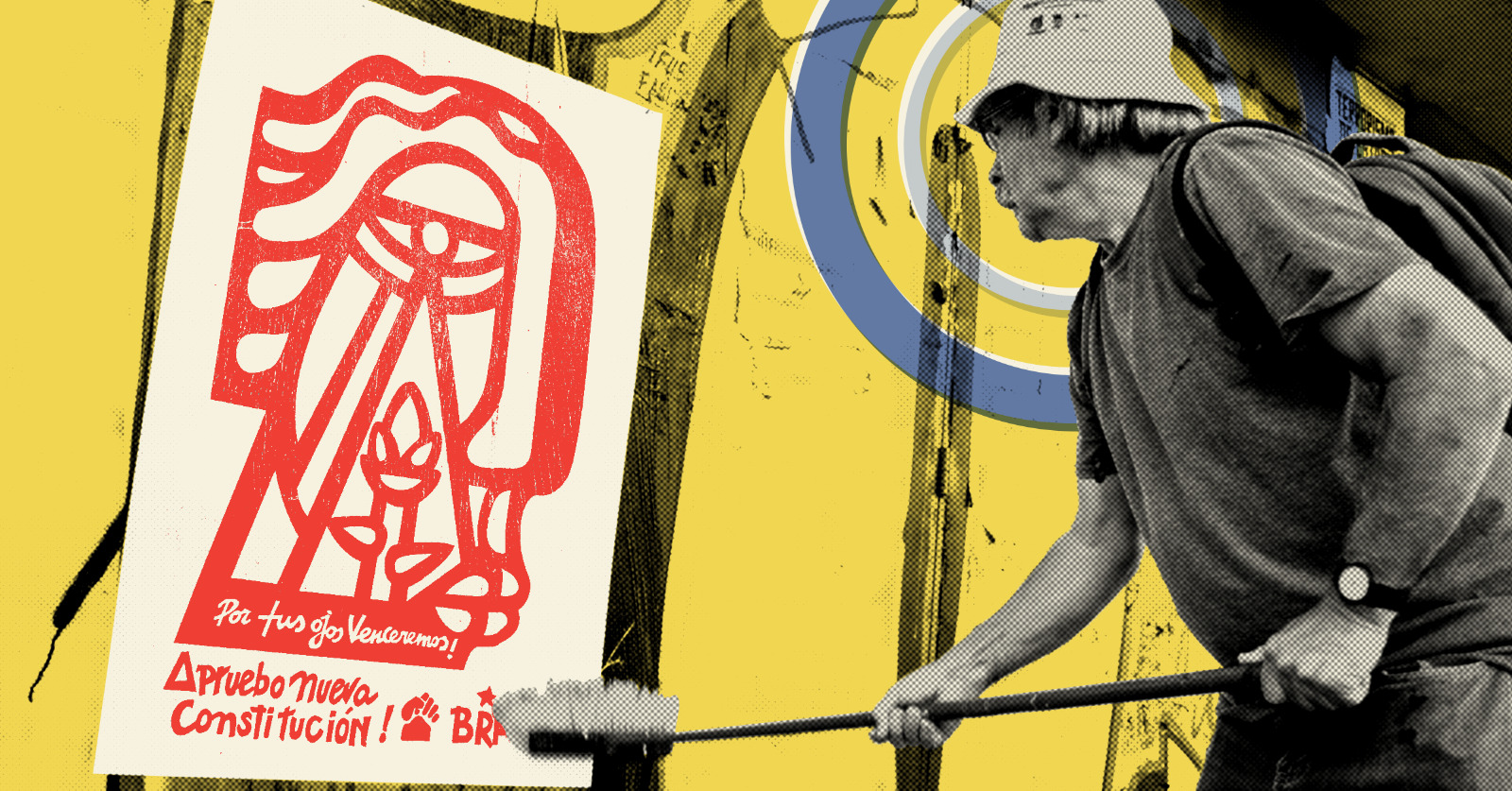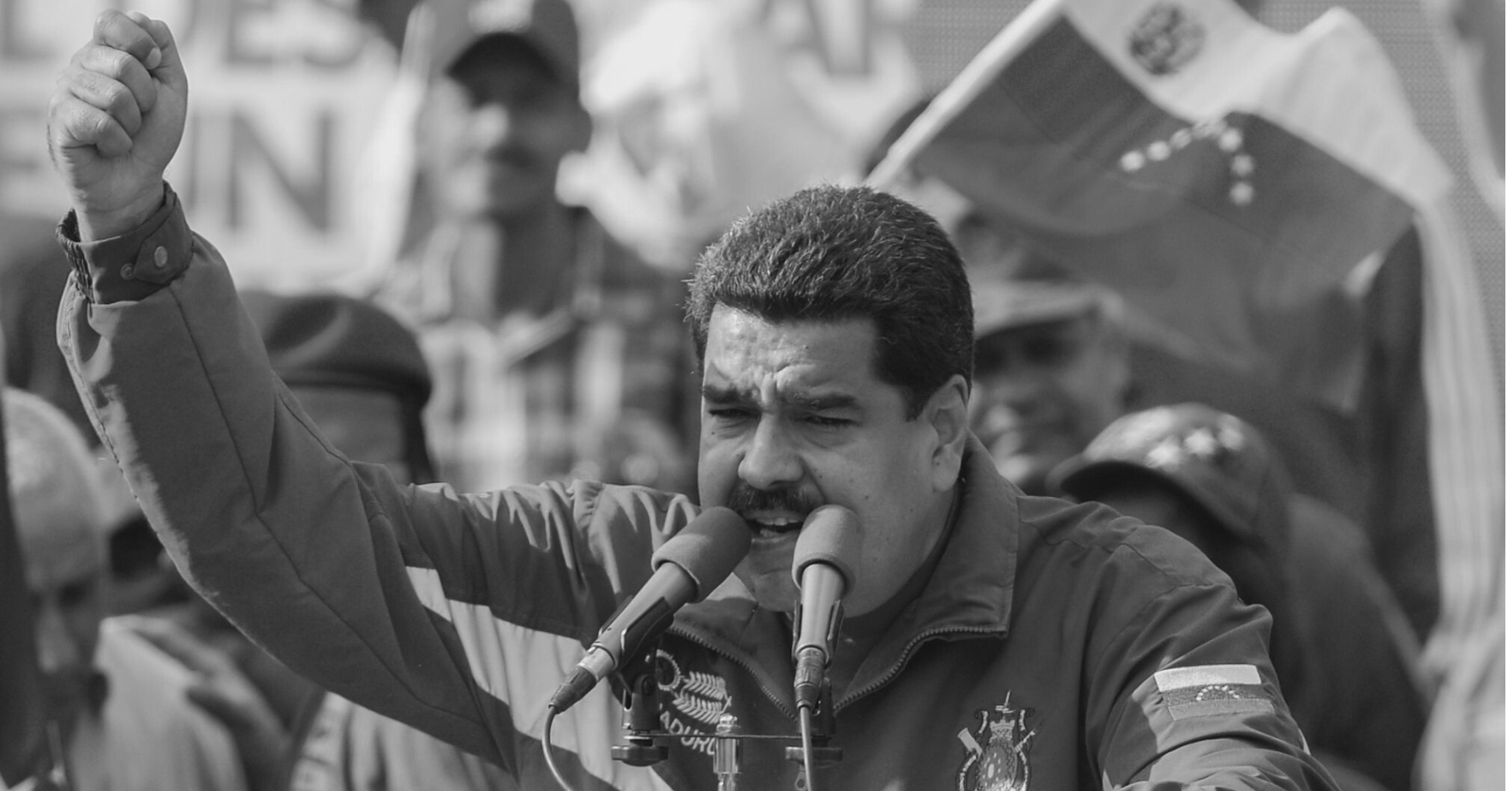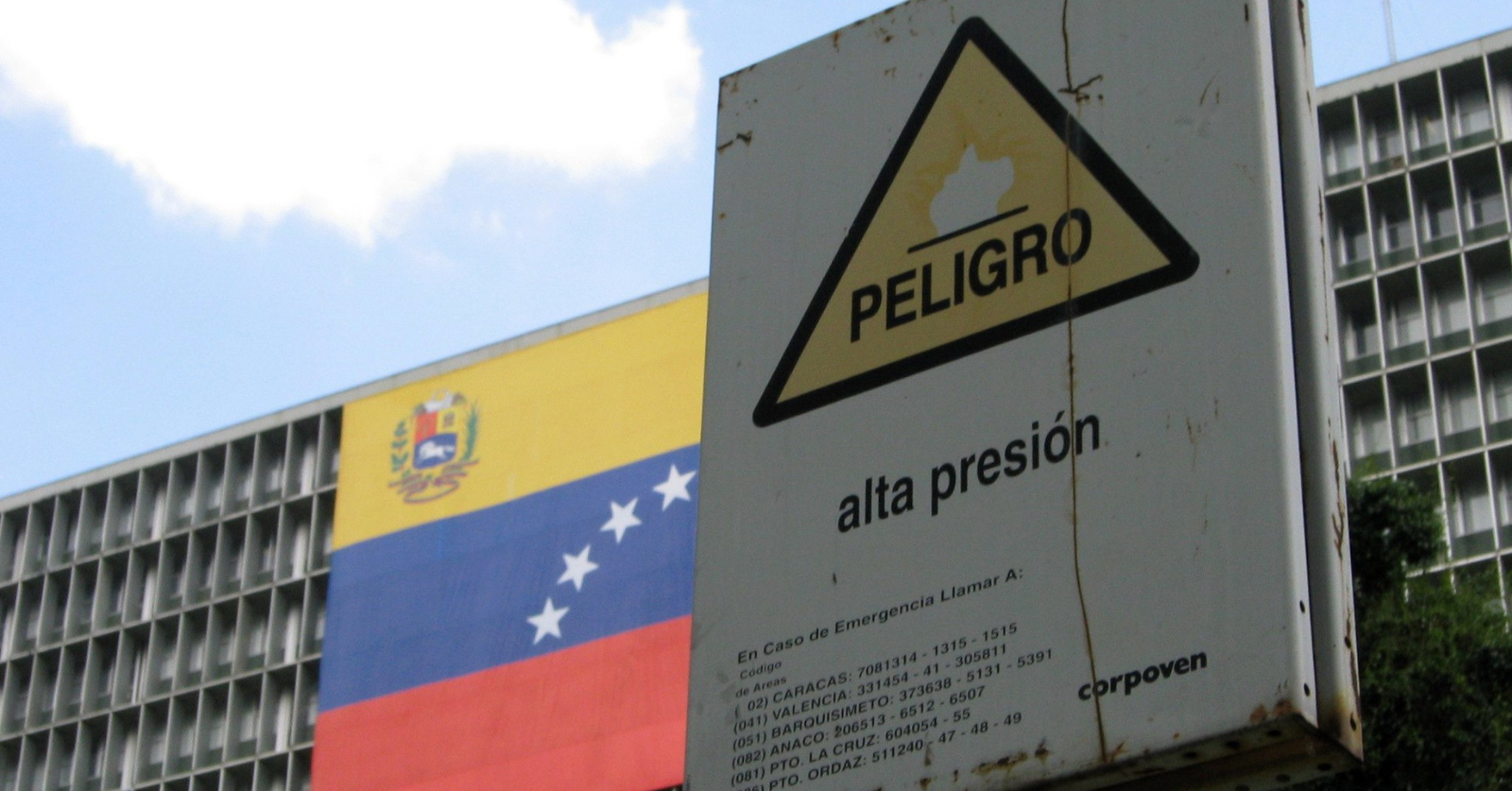Yesterday, Chileans went to the polls in a historic vote on whether or not to approve the text of a new constitution.
The draft text was broadly progressive, promising to guarantee unprecedented social rights, and radically reimagine Chile’s political structure. It was drafted in the most open and democratic procedures in history.
Voters, however, rejected the new constitutional text, sending the country back to the drawing board to draft a new constitution in a serious blow to the left in Chile.
Setback for a Three-Year Long Political Revolution
This weekend’s vote is a major setback for the three-year long political revolution in Chile. It began with a student-led fare evasion campaign in protest of a 30 cent increase in the fares in the Santiago Metro system in October 2019 and erupted into a weeks-long massive, nationwide protest against the legacy of Chile’s 1973–1990 right-wing dictatorship, the unfulfilled promises of post-dictatorship period, and the neoliberalism characteristic of both.
While protests have been a frequent occurrence since October 2019, this first phase of the cycle closed with the agreement to hold a national referendum on replacing Chile’s dictatorship-era constitution.
The country’s political leaders sympathetic to the protests justified replacing the constitution by arguing quite accurately that social legislation to relieve the injustices and inequalities at the heart of the protest movement were thwarted by a constitution written to entrench the country’s political and economic elite. The constitution was also designed to prevent the rise of new popular, left-wing movements, like Salvador Allende’s Popular Unity government which the military dictatorship had deposed.
In other words, advocates for the constitutional convention argued that the problems of inequality and lack of social progress were fundamental to the political structure of the country, not its economic structure per se.
This also moved the main field of struggle for the demands of the 2019 uprising from the streets to the ballot box.
Ballot Box Struggles
In the less than three years since November 2019 when the agreement was reached, Chileans have voted four different times.
First in October 2020 to approve the drafting of a new constitution and the election of a Constitutional Convention independent of existing political institutions, with 78% of voters agreeing to draft a new constitution and 79% preferring an independent Constitutional Convention with 51% turnout.
Next, in May 2021, Chileans elected members of the Constitutional Convention with 43% turnout, routing right-wing candidates in particular.
Then, the constitutional change became the center of gravity and debate during the presidential election of 2021 which resulted in the election of young, left-wing candidate Gabriel Boric. With 47% turnout in the first round, however, Boric was only able to finish 2 points behind far-right candidate José Antonio Kast, beating Kast in the second round with around 56% of the vote with around 56% turnout, results that showed some ambivalence towards Boric, a candidate deeply associated with the 2019 agreement on the constitution.
Through all of these votes, Chileans manifested a persistent skepticism of existing political organizations, including Boric’s Frente Amplio, and a growing reluctance (which was eventually overcome in the second round of the presidential election) towards electoral participation.
The Constitutional Convention
For its part, the Convention that was elected in May 2021 was unprecedented in its diversity. Seventy eight of its members were men, and seventy seven women, the greatest gender parity in a constitutional assembly in history. In addition, representation from Chile’s 10 indigenous groups was also guaranteed.
The majority of constituents were political outsiders, having held no previous elected office and no party affiliation, many instead coming out of grassroots social movements, like Chile’s strong, bottom-up feminist movement.
The Convention’s first president, Elisa Loncón came from a group of indigenous constituents, while its second president, María Elisa Quinteros, came from a social movement-led bloc.
And despite taking place during the COVID-19 pandemic, deliberations were remarkably open. The convention entertained citizen initiatives for constitutional provisions (requiring 15,000 signatures to be considered), used apps to poll the population on particular issues, published proceedings and votes, and live streamed debates.
In addition, while the Convention’s seat was nominally in the pre-dictatorship home of Chile’s Congress in Santiago, its committees met in locations around Chile, bringing the process to all parts of the country.
A Sweepingly Progressive Draft
The draft the Convention produced was sweepingly progressive in several areas.
The draft included rights to housing, retirement pensions, healthcare, education, and gender parity in government.
On the environment, the draft stipulated penalties for environmental harm, a ban on mining in glaciers, and proposed transforming water provision — which is currently privatized —, into a public good.
On labor, the draft proposed to guarantee a right to unionize, a right to collective bargaining, and a right to strike, regardless of whether workers are part of a recognized union, as well as the right for unions to participate in company decisions.
More controversially, the draft sought to redefine Chile as a “plurinational” state, one in which Chile’s indigenous groups would have greater autonomy, including “legal pluralism,” which would have allowed indigenous people to be tried by a system determined by the group to which they belong.
Where the Constitutional Convention Flinched
Still, despite the radicalism of this draft, the Convention voted down key challenges to Chile’s free-market, neoliberal system.
While the guarantee to healthcare would have created an healthcare system in Chile similar to the British National Health Service, the convention specifically voted down a provision that would have prevented the continuance of Chile’s two-tiered system by prohibiting a private healthcare system.
Delegates also rejected a proposal guaranteeing the ownership of Chile’s lucrative copper resources by the Chilean state, a vote emblematic of the convention’s avoidance of direct confrontation with capital. (And with this draft of the constitution defeated, we can expect a new constitutional convention even less willing to challenge the economic elites in Chile.)
The Vote on the New Constitution
Yesterday’s vote was both a referendum on the actual proposed constitution and on the occasionally messy process of democratic change to a country’s foundational political document.
With a hard bloc of right-wing opposition and an enthusiastic pro-approve campaign, the voters who decided the outcome of yesterday’s vote were the middle, and up until the last official polling on the constitution, nearly 20% of Chileans were still undecided.
The key to victory was winning over this bloc.
The Right-wing Playbook
As we’ve seen in recent years with Brexit, the 2016 and 2020 US presidential elections, and the Brazilian presidential elections in 2018 and 2022, the main thrust of the right’s strategy to oppose the new constitutional draft consisted of two primary tactics: stoke middle class anxiety about racial minorities, especially immigrants and the country’s majority-Mapuche indigenous groups, and undermine democratic processes.
Since the beginning of the pandemic, Chile has seen an increase in violent crime, and immigrants, particularly those from Venezuela, have been blamed by the right for the situation. On the other hand, Mapuche resistance groups in the south of the country have made headlines persistently in the past few months as the conflict with the logging industry there has intensified.
On the other hand, Elisa Loncón, the first elected president of the convention, warned last year of a sustained disinformation campaign on Twitter targeting herself and the convention as a whole, a campaign that often asserted that delegates were lazy and not doing their work and started a hashtag to remove Loncón from the presidency of the convention.
As the campaign progressed, this morphed into conspiracy theories and promises of armed insurrection in the case of an “Approve” victory.
In addition, a central point of right-wing ire seems to have been the provisions to create a plurinational state in the constitutional draft. The right denounced the plurinational provisions, pointing to the sometimes violent clashes in the south involving Mapuche activists. The plurinational provisions also fostered the misperception that the new constitution would create separate and parallel systems for indigenous people that would divide the country and threaten democracy.
Why Apruebo Failed
The right were not the exclusive critics of the constitution, and elements of Chile’s center-left turned against the draft constitution.
A center-left group called “Amarillos” (yellows) mounted a campaign largely expressing nebulous dissatisfaction with the current draft, and appealing to a sense of apathy about the specific text of the document.
Still, the Apruebo (or “approve”) campaign seemed to be gaining steam in the final weeks before the vote. The campaign’s final rally evoked the high points of the 2019 uprising, uniting half a million people on the streets of central Santiago. The Rechazo (“reject”) campaign only managed a paltry showing of several hundred, making it clear that the energy, if not the numbers, was with the Apruebo campaign.
And while the official ads for the Rechazo campaign played on a general, non-specific dissatisfaction, sometimes rising to the level of ridiculous (one ad characterized the new constitutional draft as born out of hate), the Apruebo campaign ads, though occasionally disjointed, generally focused on the real, concrete benefits the constitutional draft would bring.
Another important factor is that much of the relative weakness of the Apruebo campaign is due to the fact that it had a much shorter time frame in which to convince Chileans on the fence. Campaigning really didn’t begin until after the July 4 closure of the Constitutional Convention, while the Rechazo campaign had essentially not demobilized since the first October 2020 referendum, giving them ample time to foster skepticism among a majority of Chileans. Additionally, the amount of money donated to the Rechazo campaign far exceeded what was donated to the Apruebo campaign.
A longer runway, better funding, and a greater ability to reach more Chileans would certainly have boosted the Apruebo campaign.
But in the end, the Apruebo campaign failed to allay the majority of Chileans’ doubts about the draft constitution, and the Rechazo campaign was able to capitalize on that uncertainty.
From Mass Revolt to Constitutional Vote
The political cycle starting with the October 2019 uprising and extending through yesterday’s vote has in many ways been a great experiment in institutionalizing popular demands arising from a situation of mass, popular revolt.
This final phase in the move from mass revolt to constitutional vote, and the failure to win the vote, highlights some important lessons in retrospect.
Democracy is More Than Just Procedures
Great pains were taken to ensure an unprecedented level of transparency and popular input in drafting the constitution, but these ultimately failed to secure the broad-based support they were intended to. The openness of the process, however, did little to ensure mass buy-in.
This raises the question of how a majority of Chileans might have felt sufficient buy-in to support a constitutional re-write. One answer to this problem lies in the current lack of democratic political organizations with a truly mass base. Throughout the process from 2019 through the present, Chile’s political parties, including newer, more dynamic ones like Frente Amplio, have struggled to maintain the support of the masses who rose up in 2019, and failed to attract a mass base.
As a result, many of the ordinary Chileans who supported the uprising in 2019 felt alienated from the constitutional drafting process.
Neoliberalism is an Economic system, Not (Just) a Political One
Chileans rose up against the inequality of neoliberalism in October 2019, but in the final debate about the constitutional draft, social issues were front and center, including indigenous rights and gender parity. Issues related to economic inequality were given less attention, and felt rushed through at the end of months-long debates over questions about representation and the structure of the new Chilean state.
Reforming the political system, in other words, took precedence over the very economic inequality that had led Chile to “awaken” in the first place.
Where Chile Goes From Here
The failure of this draft constitution does not mean the end of the dream of replacing Chile’s constitution. President Gabriel Boric has indicated that his government will still consider the vote to replace the constitution as still valid and will convoke a new Constitutional Convention to create a new draft constitution to vote on.
But yesterday’s vote means conditions will have shifted significantly. Entering into the constitutional drafting process, the left held a strong position. Now, the right will go into any election of convention delegates and into the convention itself with much greater rhetorical leverage than before. Any new constitutional draft can be expected to be less sweeping and progressive as the one that was voted down yesterday.
And if this draft failed to capture some of the demands that animated the 2019 social uprising, any new draft will likely be even further from the spirit of 2019.
But the path for reforming the constitution was always a precarious one.
The 2019 uprising demonstrated that the appetite for dramatic change in the political and economic system in Chile exists, even if in latent form. But it seems no political organization currently exists that has sufficient organization and sufficient support of regular Chileans to take full advantage of that appetite. The changes to the political system proposed in the rejected draft constitution were broad and sweeping, even if they also stopped short of challenging capital’s economic interests in Chile.
Ultimately, new constitution or not, if Chileans are to dismantle their neoliberal system, they need not just a mass uprising, but sufficient political organization to carry their demands forward while maintaining and growing support. The task now is not only to draft a new constitution, but to build the political organization that can carry on in the legacy of the 2019 uprising.




